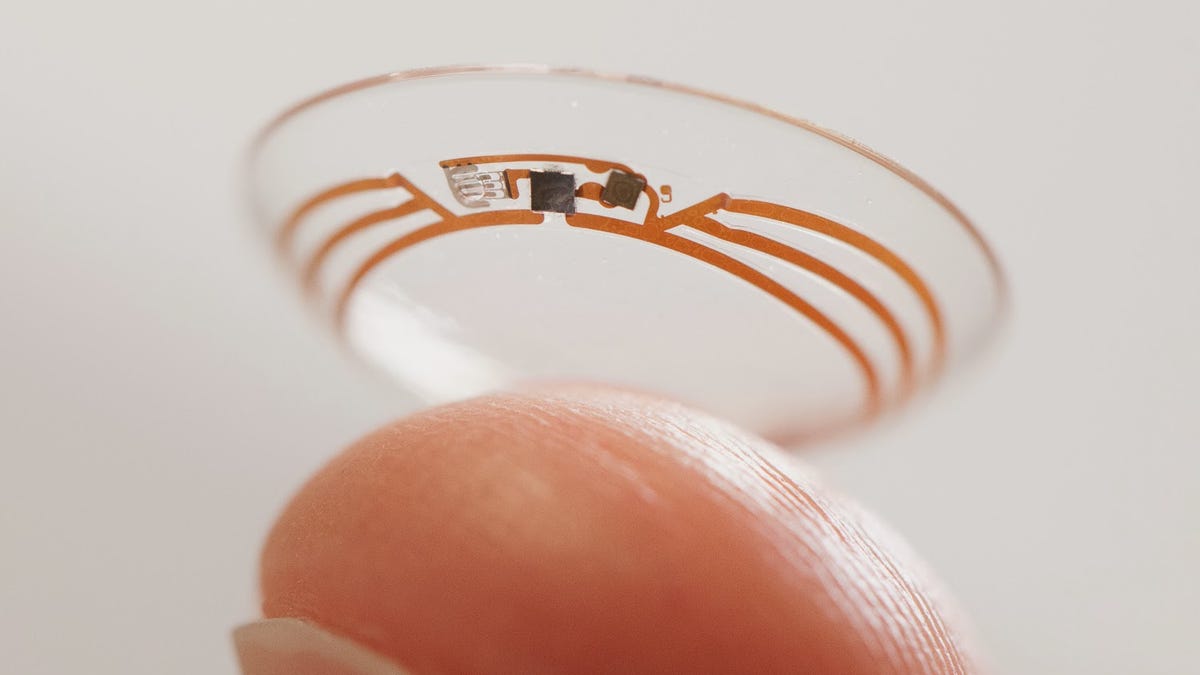Google sister company puts glucose-sensing contact lenses on hold
Google parent Alphabet's life sciences unit, Verily, will instead focus on two other smart lens projects.

A prototype of a smart contact lens to measure glucose levels in people with diabetes.
Alphabet's life sciences arm, Verily, is putting a hold on its work with glucose-sensing contact lenses, Chief Technical Officer Brian Otis said in a blog post Friday.
Verily, part of Google parent company Alphabet, embarked on the project in 2014. Its goal was to create a smart contact lens embedded with tiny sensors that could potentially help diabetics monitor their glucose levels. Later that year, Verily announced a partnership with Alcon, the eye care division of Swiss pharmaceutical company Novartis, which called for Alcon to license the smart lens technology.
In addition to the glucose-sensing lens, Verily has been working on a contact lens for presbyopia, or age-related farsightedness, and an intraocular lens designed to improve eyesight after cataract surgery.
Otis said Verily's clinical work with the glucose-sensing lens showed there was "insufficient consistency" in measurements of the correlation between tear glucose and blood glucose concentrations "to support the requirements of a medical device." This was partially linked to challenges with getting reliable tear glucose readings on the eye, which can be a complex environment.
Verily's clinical studies have also shown there are challenges to "achieving the steady state conditions necessary for reliable tear glucose readings," Otis said.
As Verily and Alcon shelve their work with the glucose-sensing lens, they'll continue to focus on the other smart lens projects.
"We're looking forward to the next phase of development on our other two smart lens programs with Verily," Alcon said in a statement.
Otis said Verily remains "committed to improving the lives of people with diabetes" and is working with Onduo, its joint venture with Sanofi, to "integrate continuous sensing into the care paradigm for people living with Type 2 diabetes." Verily is also working with Dexcom to develop smaller continuous glucose monitors.
CNET's Holiday Gift Guide: The place to find the best tech gifts for 2018.
Best Black Friday 2018 deals: The best discounts we've found so far.

